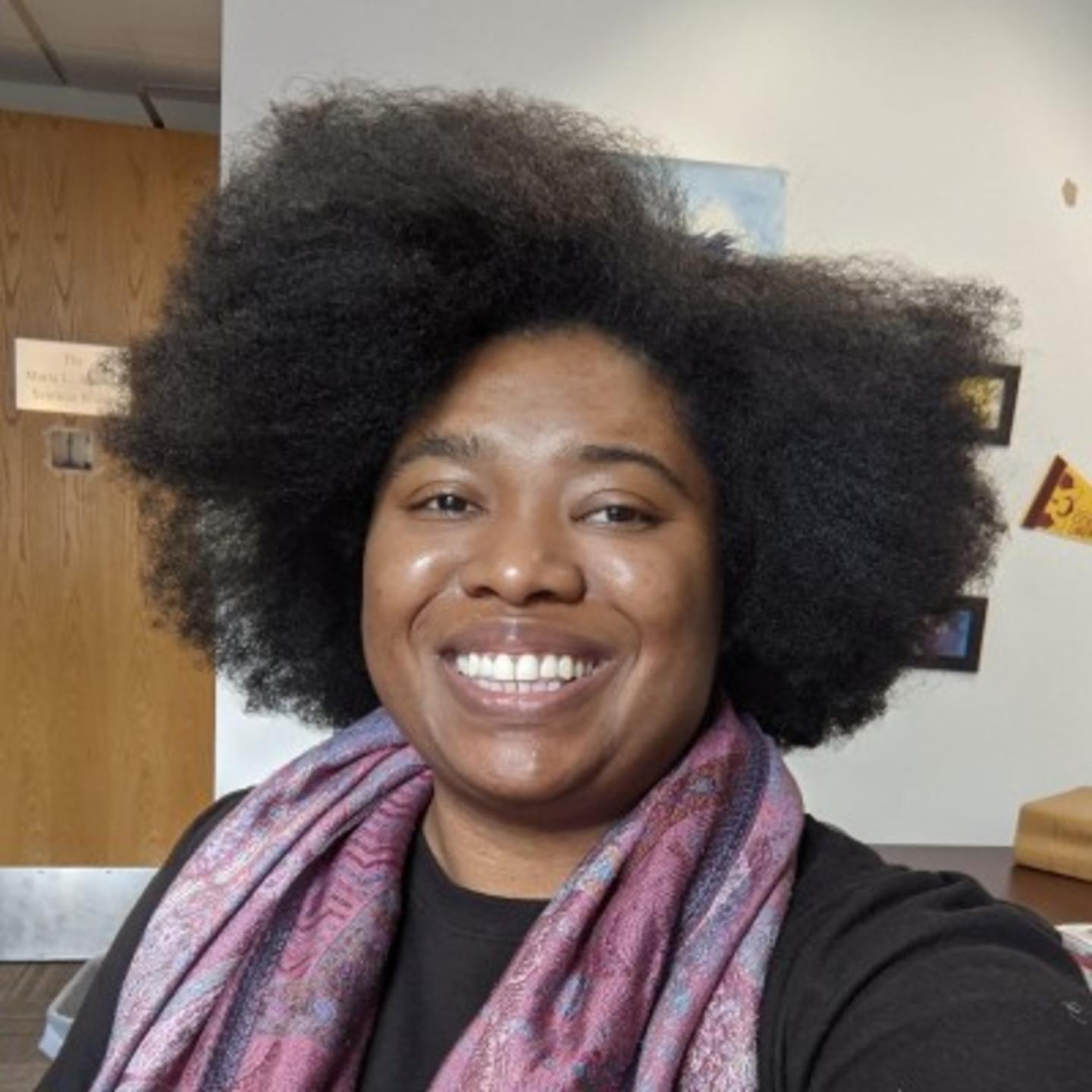
Doctoral candidate Monica R. Evans received a Beverly and Richard Fink Summer Research Fellowship to explore the representation of Blackness in media.
What do you call your project and how would you summarize it? How does it connect to your broader research interests?
What is Unapologetic Blackness? What does Unapologetic Blackness look like in media? Does Unapologetic Blackness combat the pessimism in media studies regarding Black representation?
Those are the research questions I’m trying to answer with my project, “The Making of Unapologetic Blackness: Black Women, Media, and Meaning-Making.”
This study seeks to contribute to critical feminist media studies by uplifting Black women in research discussion and not focusing on the negative stereotypes, tropes, or other issues that often plague media studies when examining Blackness.
What's exciting about your project? What has this award allowed you to do?
As a Black woman who does Black feminist media studies, I’ve noticed that the scholarship is not geared towards favorable representations of Black people and Black women in general. Instead, it reflects the social inequities and inequalities that Black people face, which is what I refer to as the “doom and gloom of Black studies.”
The adoption and usage of Afro Pessimism (a perspective that emphasizes the impact of anti-Black racism) is prevalent in Black studies and often offers a negative look into Blackness. Afro Pessimism is not universal to media studies, but there is rarely the study of anything else.
While such a viewpoint is valid and important, for my dissertation I want to look beyond the study of inadequacy that is often tied to Black studies because Blackness is not only defined by deficits in representations, stereotypes, or otherwise.
What challenges have you faced? Have there been any notable surprises?
Exploring the archives of media and the common themes has been surprising as I've found that for every joyful representation of Blackness, there is an underpinning of melancholy combined. This gives each theme a depth that I was not expecting and also makes it challenging to conceptualize at times.
How is your project making a difference in the world?
Ultimately, this project aims to expand the Afrofuturist narrative of “imagining forward” when considering the present. This project seeks to investigate the unique intersection between restoring Black women’s narratives and centering the present representations of Black women.
Specifically, this project aims to explore what factors influence Unapologetic Blackness and how these factors are represented in media. This is important due to the numerous negative portrayals in the media since the very start.
How has the award made a difference?
This fellowship gave me the opportunity to re-examine my work and approach to research. It also allowed me to address how Blackness is represented in popular culture by examining various aspects together and interchangeably, with a particular focus on the intersection of these aspects.
This work is an especially important scholarly contribution to the field of critical and rhetorical analysis of music and popular culture that I am undertaking at the University of Minnesota. My emerging conceptual framework will hopefully improve our understanding of how Black representation in media and popular culture is influenced by historical factors such as gender and race.
What partnerships has this award helped you develop and nurture?
I was able to enhance my collaborations with researchers at the University of Minnesota as well as expand my network and get to work closely with archival researchers and librarians.
What's next?
I will be summarizing my findings within my dissertation, after which I will build the basis of my research program to use in universities or organizations outside the U of M upon graduation.
This story first appeared on the College of Liberal Arts website. You can help support students in the college like Monica.